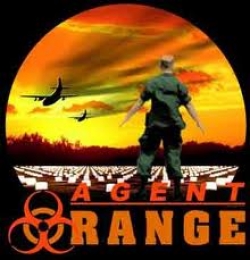The author of the Official History's account of the Agent Orange controversy, Professor FB Smith, believed the 1980s was a time 'when ... private greed became, for some, a public good'. He zero'd in on this campaigning group of veterans and without having interviewed any of the national leadership, he lumped them into that category. In intemperate outbursts, he declared: 'A small minority of disgruntled Vietnam veterans seized on the issue both as an explanation of their discontent and a likely source of [undeserved] additional repatriation benefits.' He declared that, '[the] clash epitomizes many of the worst aspects of Australian behaviour in the 1980s.'
It was an extraordinary outburst. Phill and many of his colleagues in the national leadership of the Agent Orange campaign had already proven beyond any doubt they had admirable values and were worthy of Australian society's respect.
Phill Thompson had served two tours with 1RAR in Vietnam and been Wounded-in-Action. He gave 14 years service to the army and was devastated when he was medically discharged because of a heredity cancer. He saw his leadership of the Agent Orange campaign as a continuation of his service. He was later appointed to the Order of Australia.
And what about Terry Loftus. He also served two tours in Vietnam with 1RAR where he was Wounded-in-Action and Mentioned in Despatches. He served the army for 22 years.
Then there was Tim McCombe. He served in Vietnam with 2RAR where he trod on a mine and lost a leg. He was later appointed to the Order of Australia.
And there were many more of their ilk involved in the campaign leadership.
These people were neither greedy nor dishonest as the Official History would have us believe. And neither did the 'clash' epitomize the 'worst aspects of Australian behaviour'. Rather the 'clash' displayed some remarkably fine behaviour by a group of veterans dedicated to remedying an injustice being visited on their fellow veterans and their families. It was behaviour in the best ANZAC tradition.




